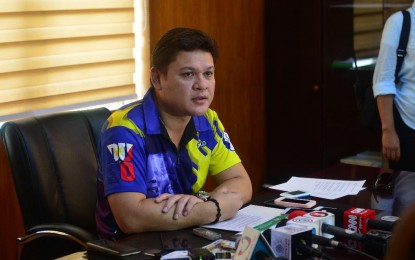Davao City First Congressional District Representative Paolo Duterte has called for the implementation of the law creating the Metropolitan Davao Development Authority (MDDA) to put in place efficient, long-term solutions to the challenges facing the rapid urbanization and progress of one of the fastest growing regional economies in the country.
Under the Republic Act (RA) 11708 or The MDDA law are metropolitan of Davao, Panabo, Tagum, Island Garden in Samal, Digos, and Mati, as well as the municipalities of Sta. Cruz, Hagonoy, Padada, Malalag, Sulop, Carmen, Maco, Malita and Sta. Maria in Davao Region.
Duterte noted that Metro Davao spurred the pre-pandemic growth of the Davao Region to 7 percent in 2019, making it the country’s third fastest regional economy. Even amid a pandemic, the Davao Region continued its economic expansion at 5.9 percent in 2021, which is above the national level, said Duterte citing the data from the Philippine Statistics Authority (PSA).
The development of Metro Davao, which serves as the economic and administrative core of the Davao Region and the entire Mindanao, requires a unified approach to lessen, or even nip in the bud. These problems that plague fragmented urban communities, Duterte said.
“We should not delay anymore the implementation of the law creating the MDDA. Metro Davao is seven times the size of Metro Manila and even bigger than the land area of Singapore. The MDDA is necessary so that the development plans of the cities and municipalities comprising Metro Davao will move in a synchronized path that is beneficial to all,” Duterte said.
“We can save Metro Davao from haphazard planning and transform it into a smart, sustainable, and resilient metropolis if the Metro Davao Development Authority can start doing its job,” added Duterte, who was one of the principal authors of the MDDA law in the 18th Congress.
Duterte said the MDDA’s responsibilities and functions are designed to further energize Mindanao’s economy, expand job and business opportunities, and improve the delivery of public services in the Davao Region.
Among the key concerns that the MDDA should urgently address is Metro Davao’s infrastructure system, its transportation policies and programs, solid waste disposal and flood control management, water and power supply, and urban planning and shelter concerns, Duterte said.
Duterte said that with the MDDA in place, Metro Davao can further boost the development of Mindanao, and transform it into a major economic gateway in Asia.
Under the law, the Metropolitan Davao Development Council (MDDC) will serve as the MDDA’s governing board and policy-making body.
The Davao Regional Development Council began drafting the MDDA law’s IRR and initial budget as well as the MDCC’s staffing pattern in May this year. The final outputs will be endorsed to the Department of Budget and Management (DBM).
The 18th Congress passed the MDDA law in the final months of the administration of former President Rodrigo Duterte. The law was signed by Duterte in April 2022, with only two months left before the end of his term. ###


